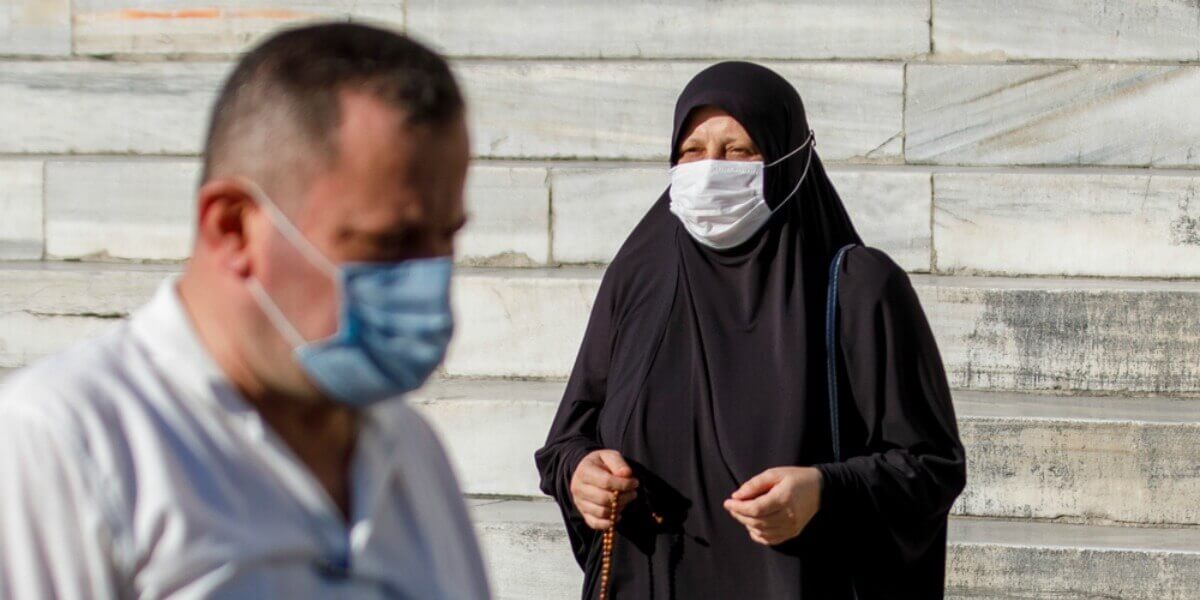
World's ‘first-ever halal-certified face mask’ not based on SMIIC standards, confirms the OIC body
The face mask certified halal by United World Halal Development is not based on any standards from the Standards and Metrology Institute for Islamic Countries despite what the company claimed, Ihsan Ovut, SMIIC Secretary-General told Salaam Gateway.
Singapore-based halal consultancy and certifier United World Halal Development said in a media statement on September 12 it had introduced the first-ever face mask in the world to get halal certification.
The company e-mailed Salaam Gateway a copy of the halal certificate, on September 14, for the “Al Noora” brand of face mask manufactured by China-based Fujian Haitai Intelligent Technology Co Ltd. that stated the compliance was based on “guidelines of the SMIIC Halal Standards” and that the product(s) contains permitted ingredients, therefore is lawful for Muslim consumption/use.
However, SMIIC Secretary-General Ihsan Ovut informed Salaam Gateway on the phone on September 14 that the Organisation of Islamic Cooperation (OIC) body does not have any relevant standard.
“As SMIIC we have standards on halal Issues. But currently, we do not have any standard that defines the requirements of a face mask to be halal,” said the SMIIC Secretary-General in a written response to questions on September 16.
In response, United World Halal Development said in an email that as a halal certification body, it is “doing certification based on industry’s best practice” and that its “team has reviewed the product under the basic requirements of halal which means clean, permitted, lawful, good for human consumption/use ethical”.
The company said it made a mistake with the halal compliance certificate.
“There was a typo error into the certification by our backend team and which was corrected,” said United World Halal Development.
Its revised halal certificate does not refer to halal standards from any standard-setting body but says that the non-medical face mask contains permitted ingredients, therefore is lawful for Muslim consumption/use.
“It is good to define requirements of the products that come into contact with human skin not only according to Islamic rules but also health and hygiene requirements,” said SMIIC’s Ihsan Ovut.
“There are international and national standards published for face masks requirements and an interpretation according to the Islamic Rules can be done. But we have to keep in mind that the masks are for external use and can be treated as a textile product not food,” said the Secretary-General.
He stressed that certification should be based on standards.
“Halal certification of a product, service or system should all be based on standards which are prepared by relevant stakeholders and with their consensus as well. Because in standards the requirements are defined according to technical and religious views. But it is mostly seen in Halal Certification bodies that in lack of a standard, they follow the certification schemes that they make according to the Islamic Rules with their interpretation or understanding; this is not a reliable and professional method,” wrote Ovut.
This is not the first time the Islamic economy is hearing about halal certification for face masks.
In August, a subsidiary of Malaysian firm Notion VTec said it had applied to national certifier JAKIM for halal status for its face masks and N95 respirator.
The company confirmed with Salaam Gateway in an email on September 14 that the JAKIM halal application is still in progress and that it is going to register soon with the U.S. Food & Drug Administration (FDA) and Europe’s CE.
JAKIM in 2019 started giving halal certification to atypical items, such as car wash products, rubber gloves, and diapers and sanitary napkins.
The Islamic authority told Salaam Gateway on March 18, 2019 that the halal certification for diapers and sanitary napkins manufactured by Malaysian company BioIntegrasi was not tied to any standard but referenced Malaysia’s Halal Certification Procedure Manual.
© SalaamGateway.com 2020 All Rights Reserved
